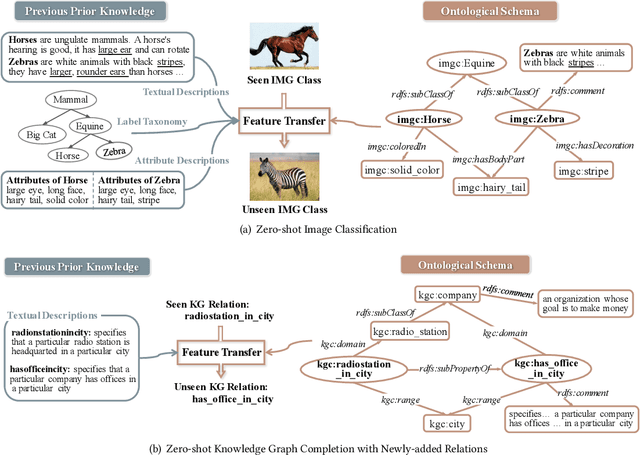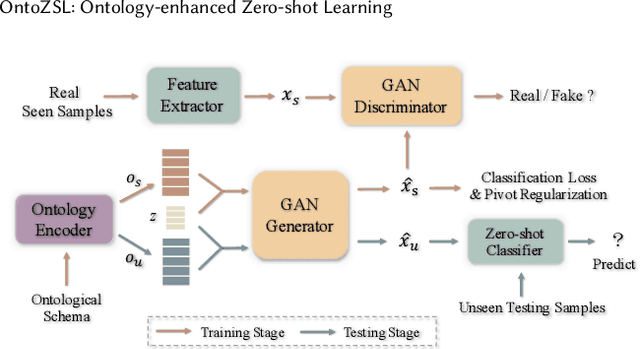OntoZSL: Ontology-enhanced Zero-shot Learning
Paper and Code
Feb 15, 2021



Zero-shot Learning (ZSL), which aims to predict for those classes that have never appeared in the training data, has arisen hot research interests. The key of implementing ZSL is to leverage the prior knowledge of classes which builds the semantic relationship between classes and enables the transfer of the learned models (e.g., features) from training classes (i.e., seen classes) to unseen classes. However, the priors adopted by the existing methods are relatively limited with incomplete semantics. In this paper, we explore richer and more competitive prior knowledge to model the inter-class relationship for ZSL via ontology-based knowledge representation and semantic embedding. Meanwhile, to address the data imbalance between seen classes and unseen classes, we developed a generative ZSL framework with Generative Adversarial Networks (GANs). Our main findings include: (i) an ontology-enhanced ZSL framework that can be applied to different domains, such as image classification (IMGC) and knowledge graph completion (KGC); (ii) a comprehensive evaluation with multiple zero-shot datasets from different domains, where our method often achieves better performance than the state-of-the-art models. In particular, on four representative ZSL baselines of IMGC, the ontology-based class semantics outperform the previous priors e.g., the word embeddings of classes by an average of 12.4 accuracy points in the standard ZSL across two example datasets (see Figure 4).
 Add to Chrome
Add to Chrome Add to Firefox
Add to Firefox Add to Edge
Add to Edge